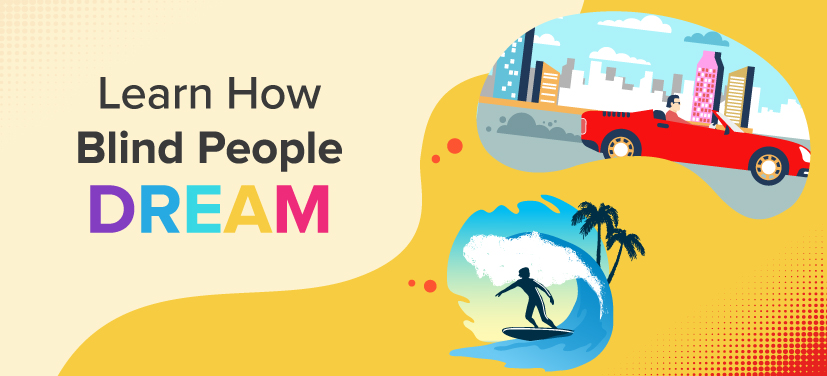
For most of us blessed with sight, living with blindness is incomprehensible. Sure, you can shut your eyes for a moment. You can even blindfold yourself for a week. But you still wouldn’t come close to the actual thing. Just as incomprehensible as the waking life of the blind is the sleeping one.
When most people think about dreams, they recognize the visuals that dreams are made of. For many, dreaming is a lot like playing a movie. It can be in black and white or in colour — either way, the visuals play a central role.
But have you ever wondered what it’s like for a blind person to dream? Many of you might have wondered whether or not a person who is born blind can see while dreaming.
Let’s find out more about what blind people might dream about.
Can a person who is blind see in their dreams?
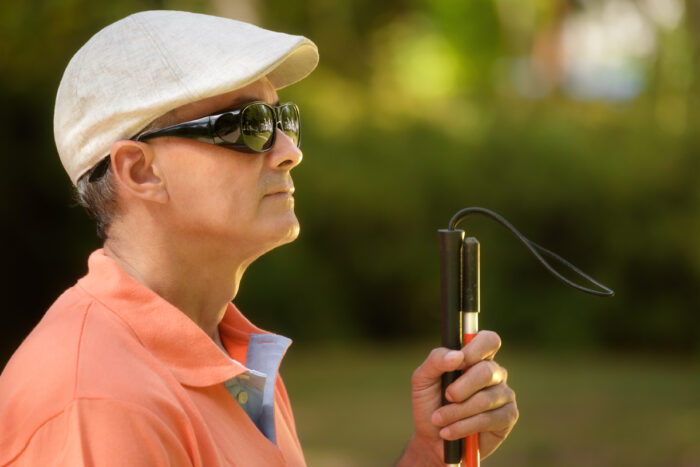
It’s a pretty common thought to wonder how differently people experience dreams. Particularly those who are navigating life with a sensory impairment. Many people with sight have a tendency to have very visual dreams. That being said, it is a normal point of wonder as to whether or not those who are blind experience the same thing when we use the word ‘visual’.
Blind people can (and do) dream, though their dreams can be somewhat different from those with sight. The type of visuals a blind person experiences in their dreams can also vary. This mostly depends on what point in their life they lost their sight.
Though theories on this vary, it is generally believed that people born blind and people who become blind later in life have less visual imagery in their dreams.
Research suggests that blind people who lose their sight before the age of 5 usually don’t see any images in their dreams. Just like they don’t see anything when they are awake.
That being said, those who went blind later in life will see visuals in their dreams. But the longer they lived blind the less common visual experiences will become.
How does a blind person dream?
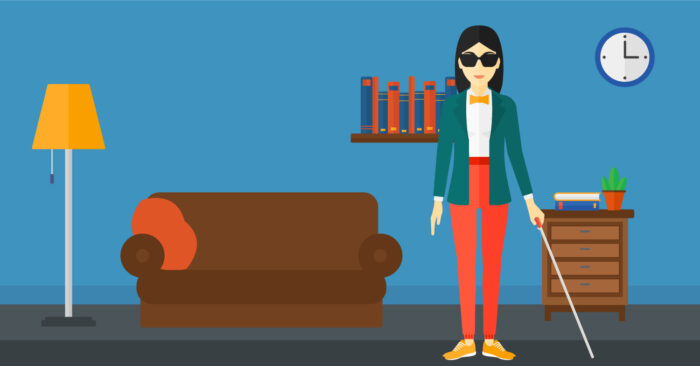
Have you ever described other sensory experiences, such as those related to smell (olfactory), taste (gustatory), and pain when describing a dream you had? Hardly, right? It is because it’s estimated that these latter three elements (smell, taste, and pain) occur in less than 1 percent of dreams of people with sight.
But one of the most fascinating things about those with blindness is that they experience dreams through other senses. Their dreams are full of sensory information — taste, smell, sound, and touch. Those who became blind later in life appear to have more tactile or ‘touch’ sensations in their dreams.
So just because they can’t see in their dreams, it doesn’t mean a blind person’s dreams are less rich in information and emotions.
What do they dream about?

Consider some common types of dreams you have. Chances are they include a mix of strange things that don’t make a ton of sense: mundane things that happen in your daily life, or potentially embarrassing scenarios.
Well, blind people largely dream about the same things that sighted people dream about. But with some differences.
A study was performed in 1999 that studied the dreams of 15 blind adults over a period of two months. Through this study, researchers found that dreams of blind people are similar to those of sighted people, with only a few exceptions:
These conclusions suggest that the dreams of blind people could reflect things happening in their waking lives, just as a person with sight would dream about.
However, more research is required to study more about the type of dreams blind people have.
Do blind people have nightmares?
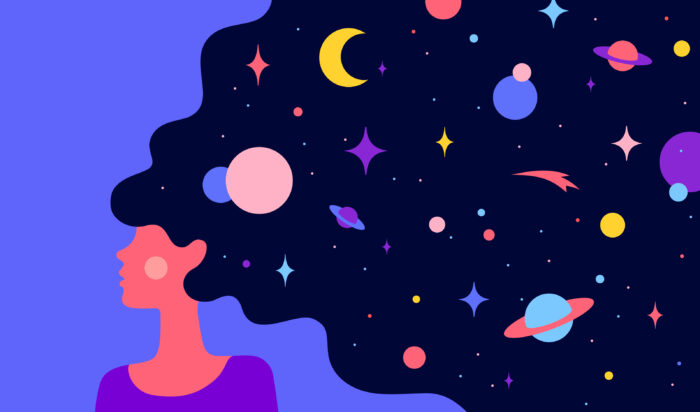
Yes, blind people have nightmares just like those with sight do. Surprisingly, those who are blind report having more nightmares than sighted people — this being especially true for those who are born blind.
Many experts believe that this is because the frequency of life-threatening experiences blind people come across on a regular basis are more than those with sight.
The researchers believe that nightmares can be seen as false alarms. As a mentally harmless way by which the human mind can adapt to the threats of life. The nightmare gives an individual an opportunity to rehearse the threat and prepare us to cope with the threat.
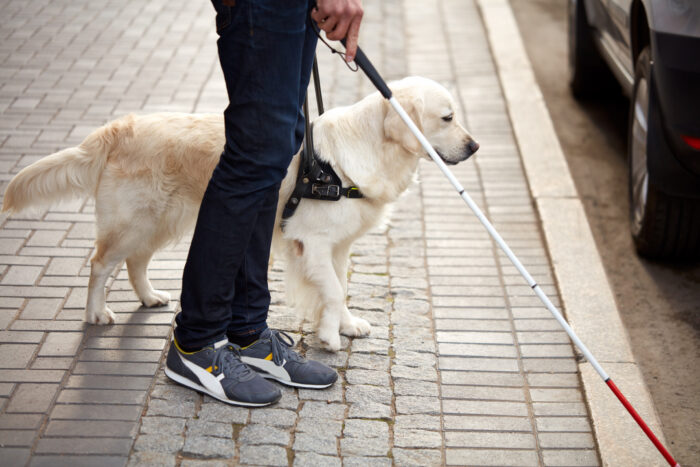
Indeed, the most common nightmares that blind reported involved things like getting lost, being hit by a car, falling into manholes, or losing their guide dog. All of these are very threatening situations in real life. And seeing how the blind people are more vulnerable to them, their minds might be amping up simulations for their own good.
The bottom line is that most blind people can not see in their dreams. But their dreams are still rich with sensory and emotional experience. And not that different from those with sight, by all accounts.
Now that you know about how blind people dream, what do you think the case is with those who are deaf since childhood? Take a guess and tell us in the comment section below.
Raza has been writing since 2008, be it fiction, poetry, or articles on science, politics, and history. He believes that words can change the world, and he uses them to inspire and empower people through his writing. When he is not working, he is watching nature documentaries or playing with his cats.
Comments
Bikramdeep Kaur
December 31, 2020
I think that deaf people have some how similar dreams like us because they are able to think
Swastika
December 28, 2020
Those who are deaf may see a lot of things like us but may not be able to hear sounds.
Thus they would not be “hearing” any conversation but remembering it in their own sign language
Parvathi Ajayakumar
December 28, 2020
I really lucky to be born with sight?and because of that I can enjoy this beautiful world..? So, I thank god for that..???And I thank byjus for sharing this piece of information..???